Key takeaways
- Town hall meetings are essential for grassroots engagement, enabling direct dialogue between citizens and representatives.
- Preparation for these meetings fosters meaningful participation and helps participants express their views more effectively.
- Following up after town halls can strengthen connections and hold elected officials accountable for their promises.
- Engaging respectfully with candidates encourages open dialogue and can influence campaign narratives positively.
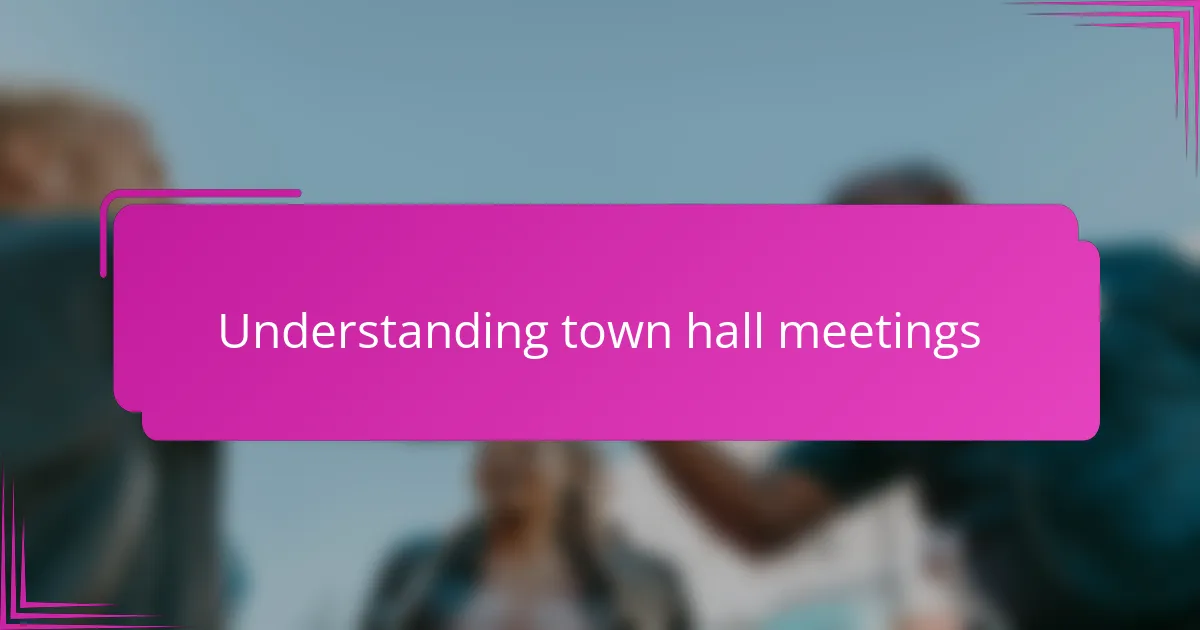
Understanding town hall meetings
Town hall meetings are more than just gatherings; they are a vital space where citizens and their representatives connect directly. I often wonder, how often do we get the chance to voice our concerns in such an open forum? From my experience, these meetings foster genuine dialogue and accountability that can’t be replicated through other channels.
When I first attended a town hall, I was struck by the diversity of opinions and the palpable energy in the room. It felt empowering to witness firsthand how these sessions encourage community involvement and allow elected officials to hear real stories from real people. This dynamic is what makes town halls a cornerstone of grassroots political engagement.
Understanding the format helps too: they usually start with a brief update from the official, followed by open Q&A. Knowing this, I’ve learned to prepare my questions carefully, making sure my voice contributes meaningfully to the discussion. Would you agree that being prepared turns participation from a passive act into an active one?
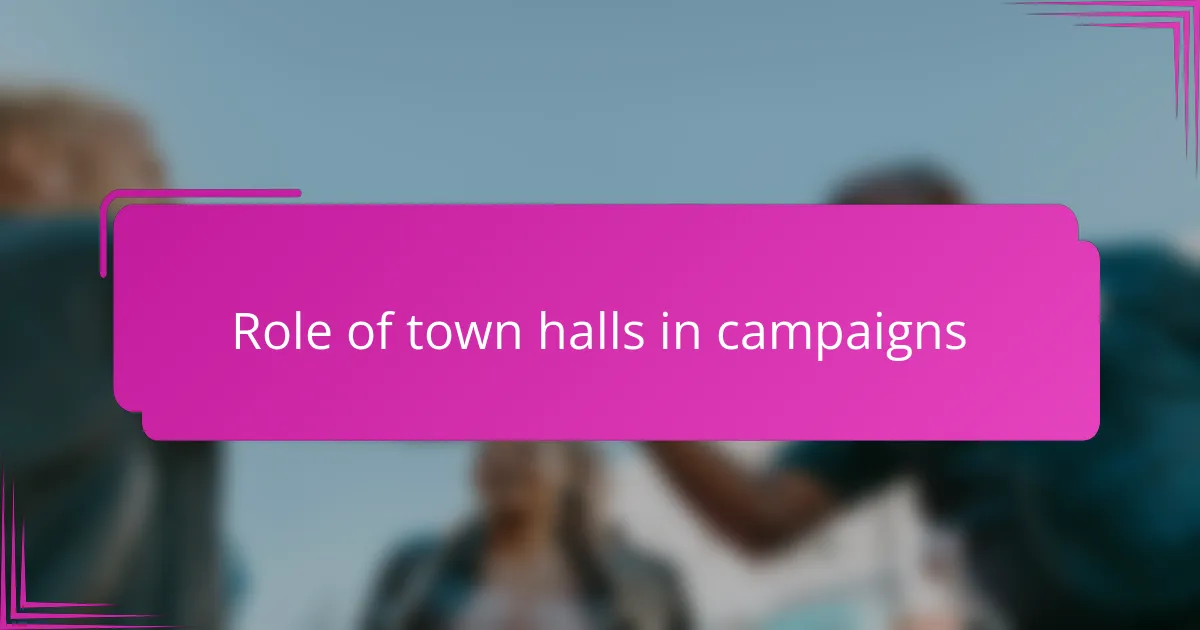
Role of town halls in campaigns
Town halls play a crucial role in campaigns by offering candidates a direct line to voters’ concerns and priorities. I’ve seen how a well-handled town hall can build trust and show that a candidate isn’t just following a script but genuinely listens to the community. Isn’t it refreshing when politicians step out from behind podiums and engage face-to-face?
During one campaign, I noticed how town halls helped shape messaging based on real questions and feedback rather than assumptions. This kind of interaction feels authentic and can sway undecided voters more than polished ads ever will. It made me realize that these meetings aren’t just routine—they’re strategic opportunities to connect on a human level.
At the same time, town halls empower participants like me to influence the conversation. By speaking up, we help keep campaigns accountable and ensure that our voices aren’t drowned out by big money or media spin. Have you ever felt the satisfaction of knowing your question sparked a meaningful dialogue or even shifted a candidate’s stance? That’s the power these gatherings hold.
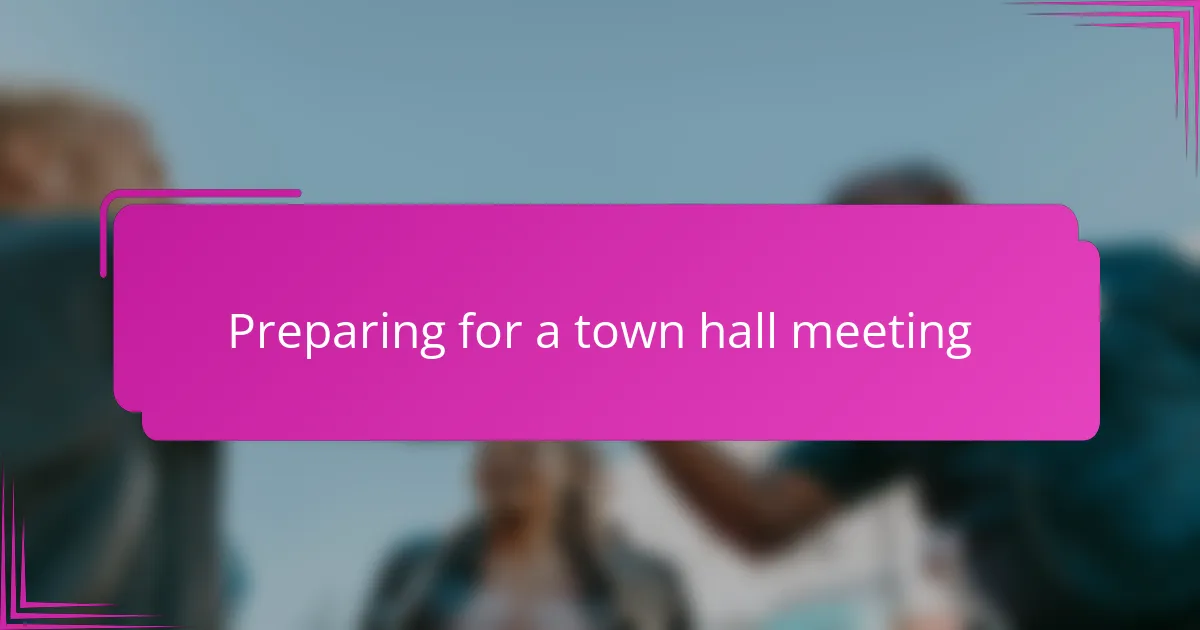
Preparing for a town hall meeting
Preparing for a town hall meeting means more than just jotting down questions—I like to research the topics that matter most to my community and the candidate’s positions. This way, I feel confident that my contributions are informed and relevant, rather than reactive or off-the-cuff. Have you noticed how preparation changes your tone from confrontational to constructive? I certainly have.
One time, I spent extra hours before a meeting reviewing recent local news and campaign promises. Walking in with that knowledge made me feel empowered rather than intimidated. It was like having a conversation with a friend rather than facing a panel of strangers. That preparation helped me stay calm and clear when it was my turn to speak.
I also think about timing and brevity—not every question needs to be a speech. I practice saying my points in a few sentences to respect everyone’s time and keep the meeting flowing. Have you ever noticed how concise questions often get more thoughtful responses? That small adjustment made my experience at town halls much more rewarding.
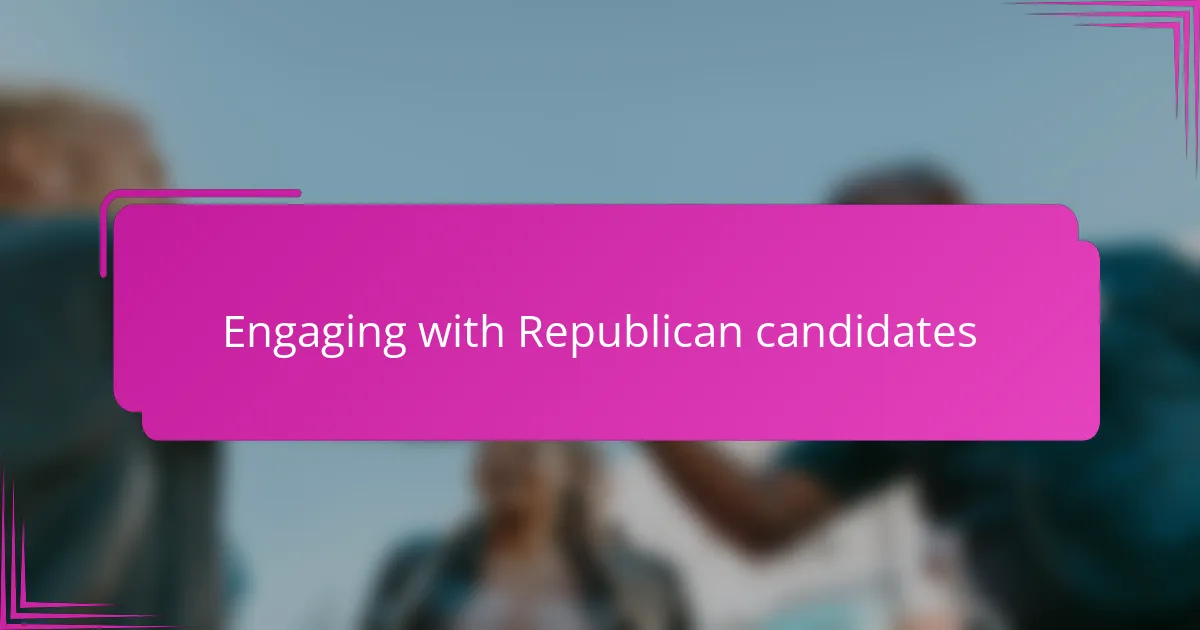
Engaging with Republican candidates
Engaging with Republican candidates at town halls has been one of the most direct ways I’ve experienced political dialogue. When I ask questions or share concerns, it’s not just about airing opinions—it’s a chance to see how seriously a candidate takes community voices. Have you ever been surprised by how candid some of these candidates can be when you engage them face-to-face?
I remember one particular meeting where a candidate took my question about healthcare reforms and responded with genuine thoughtfulness, unlike the scripted answers we often hear on TV. That moment made me feel heard and showed me the human side of campaigning. It made me wonder, how often do we miss these moments by relying only on social media or news soundbites?
What I find crucial is approaching these conversations with respect and clarity. It’s easy to get frustrated, but I’ve learned that staying calm and focused encourages candidates to open up rather than shut down. Do you think that kind of interaction can change the tone of a campaign? From my experience, it absolutely can.
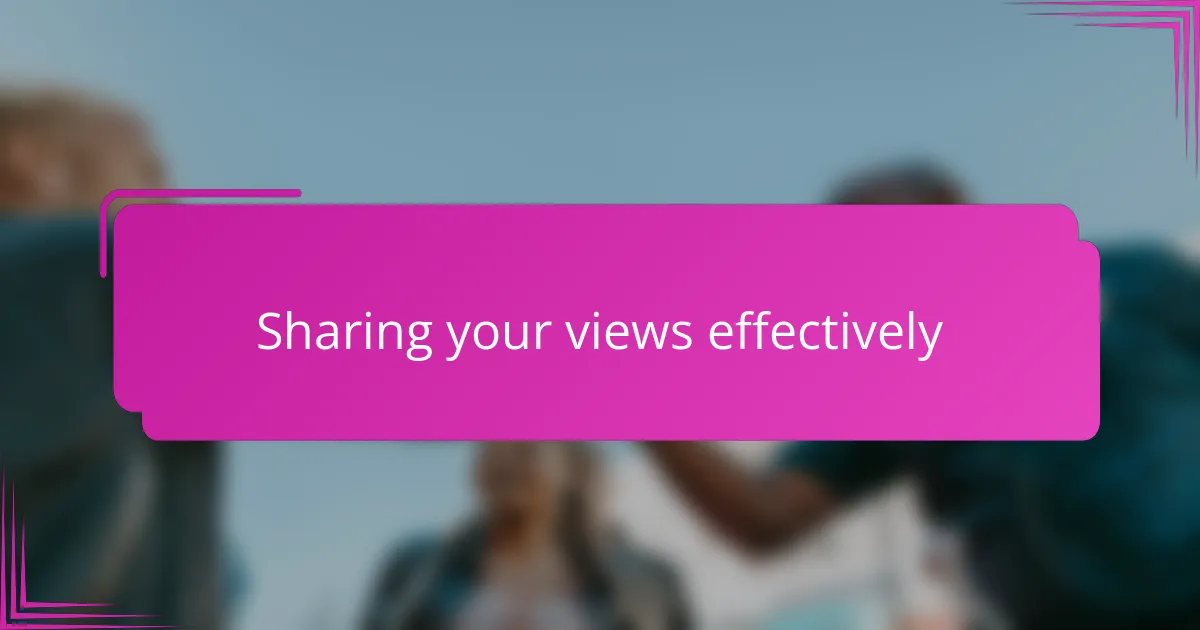
Sharing your views effectively
When sharing your views effectively, I’ve found that clarity is key. When I focus on expressing my points simply and directly, it makes it easier for both the candidate and the audience to grasp my concerns without confusion. Have you ever noticed how a clear, well-framed question invites a more thoughtful and detailed response?
It’s also important to strike the right tone. I remember a time when I approached a sensitive topic with respect and openness, and it completely changed the dynamic of the conversation. Instead of defensiveness, I got honest answers that felt like genuine dialogue rather than a rehearsed speech. Doesn’t it feel rewarding when your words lead to meaningful exchange rather than just noise?
Lastly, I’ve learned that timing and brevity often win over lengthy speeches. When I keep my comments concise, it shows respect for everyone’s time and keeps the meeting moving smoothly. Plus, focused points tend to spark more engaging back-and-forths. Have you found that your best contributions come when you stick to the essentials and speak from the heart?
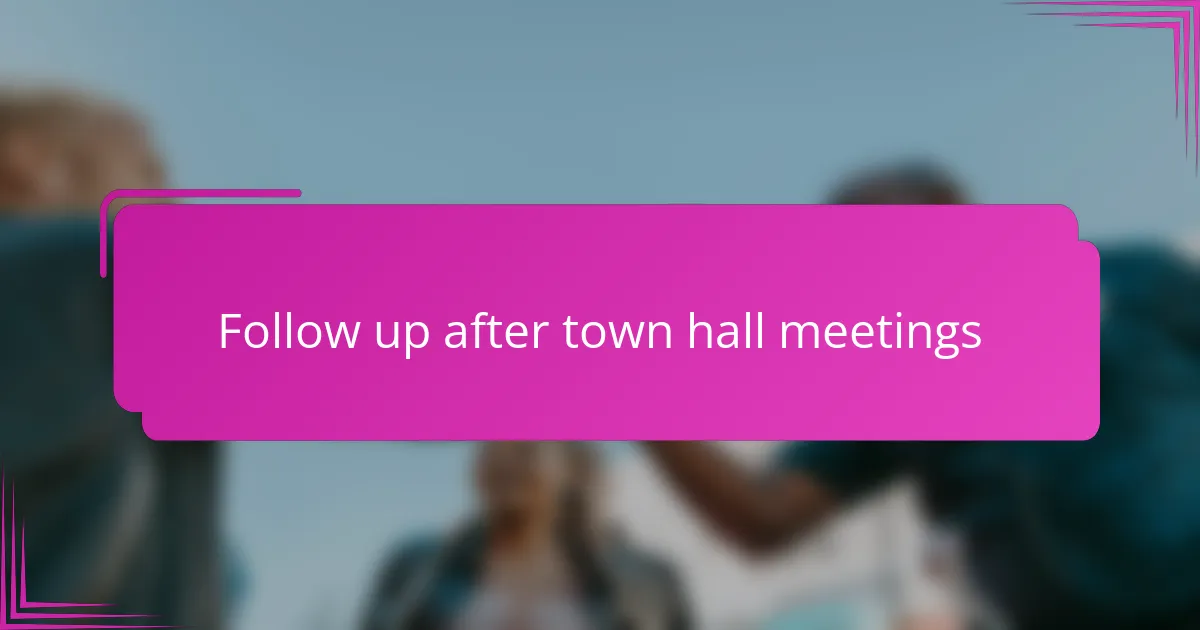
Follow up after town hall meetings
Following up after a town hall meeting can be as important as showing up. I’ve found that reaching out with a brief thank-you note or an email summarizing key points not only reinforces my commitment but sometimes even opens doors for further conversation. Have you ever felt that a simple follow-up helped deepen the connection beyond the meeting room?
Sometimes, I take the initiative to track the issues raised during the meeting by checking the candidate’s social media or campaign updates. It’s rewarding to see if the concerns discussed are addressed or if any promises evolve into action. Doesn’t it give you a sense of empowerment to hold campaigns accountable this way?
I also like to share reflections with friends or on community forums. Talking about what I heard and learned keeps the momentum going and encourages others to participate next time. Have you noticed how discussing ideas after the fact can turn an event into a catalyst for real change? That’s the kind of impact I strive for after every town hall.